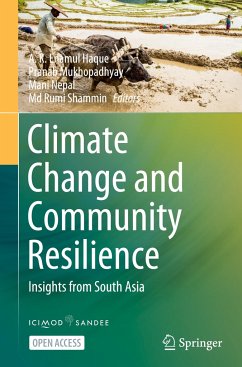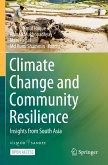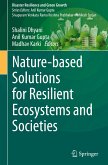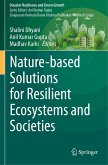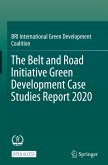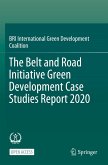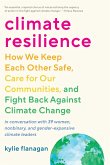This open access book documents myriads of ways community-based climate change adaptation and resilience programs are being implemented in South Asian countries. The narrative style of writing in this volume makes it accessible to a diverse audience from academics and researchers to practitioners in various governmental, non-governmental and international agencies. At a time when climate change presents humanity with a gloomy future, the stories of innovation, creativity, grassroots engagement and locally applicable solutions highlighted in this book provides insights into hopeful ways of approaching climate solutions. South Asian countries have been dealing with the impact of climate change for decades and thus offer valuable learning opportunities for developing countries within and beyond the region as well as many western countries that are confronting the wrath of climate induced natural disasters more recently.
SANDEE has been a pioneer in the developmentof research and training in environmental economics and related issues in South Asia and Prof Maler has been throughout SANDEE's history, its mentor, and its strongest supporter. Many young economists in South Asia have significantly benefited from Prof Maler's guidance and inputs. The present volume on "Climate Change and Community Resilience: Insights from South Asia" is a fitting tribute and an excellent reflection of Prof Maler's contributions to the SANDEE programme throughout his association.
- Mahesh Banskota, Professor, Development Studies, School of Arts, Kathmandu University
This comprehensive volume aptly identifies grassroots initiatives as the core of the problem of adaptation to climate change. The analysis of the different experiments is lucid, inclusive, and full of interesting detail. The methodologies used and the subjects covered span a range of frameworks and narratives. Put together, the studies are a fitting tribute to Karl-GoranMaler, who spent years putting his impeccable expertise to use for the cause of enhancing research in South Asia.
- Kanchan Chopra, Former Director and Professor, Institute of Economic Growth, Delhi, and Fellow, SANDEE
The slow international policy response to climate change elevates the importance of understanding how communities can respond to climate change's many threats. This unusually accessible volume provides that understanding for South Asia while being relevant to the rest of the world. Its emphasis on research by scholars from the region makes it a wonderful tribute to Prof. Karl-Göran Mäler, who contributed so much to the growth of environmental economics research capacity in South Asia.
- Jeffrey R. Vincent, Clarence F. Korstian Professor of Forest Economics & Management, Nicholas School of the Environment, Duke University, USA
SANDEE has been a pioneer in the developmentof research and training in environmental economics and related issues in South Asia and Prof Maler has been throughout SANDEE's history, its mentor, and its strongest supporter. Many young economists in South Asia have significantly benefited from Prof Maler's guidance and inputs. The present volume on "Climate Change and Community Resilience: Insights from South Asia" is a fitting tribute and an excellent reflection of Prof Maler's contributions to the SANDEE programme throughout his association.
- Mahesh Banskota, Professor, Development Studies, School of Arts, Kathmandu University
This comprehensive volume aptly identifies grassroots initiatives as the core of the problem of adaptation to climate change. The analysis of the different experiments is lucid, inclusive, and full of interesting detail. The methodologies used and the subjects covered span a range of frameworks and narratives. Put together, the studies are a fitting tribute to Karl-GoranMaler, who spent years putting his impeccable expertise to use for the cause of enhancing research in South Asia.
- Kanchan Chopra, Former Director and Professor, Institute of Economic Growth, Delhi, and Fellow, SANDEE
The slow international policy response to climate change elevates the importance of understanding how communities can respond to climate change's many threats. This unusually accessible volume provides that understanding for South Asia while being relevant to the rest of the world. Its emphasis on research by scholars from the region makes it a wonderful tribute to Prof. Karl-Göran Mäler, who contributed so much to the growth of environmental economics research capacity in South Asia.
- Jeffrey R. Vincent, Clarence F. Korstian Professor of Forest Economics & Management, Nicholas School of the Environment, Duke University, USA

